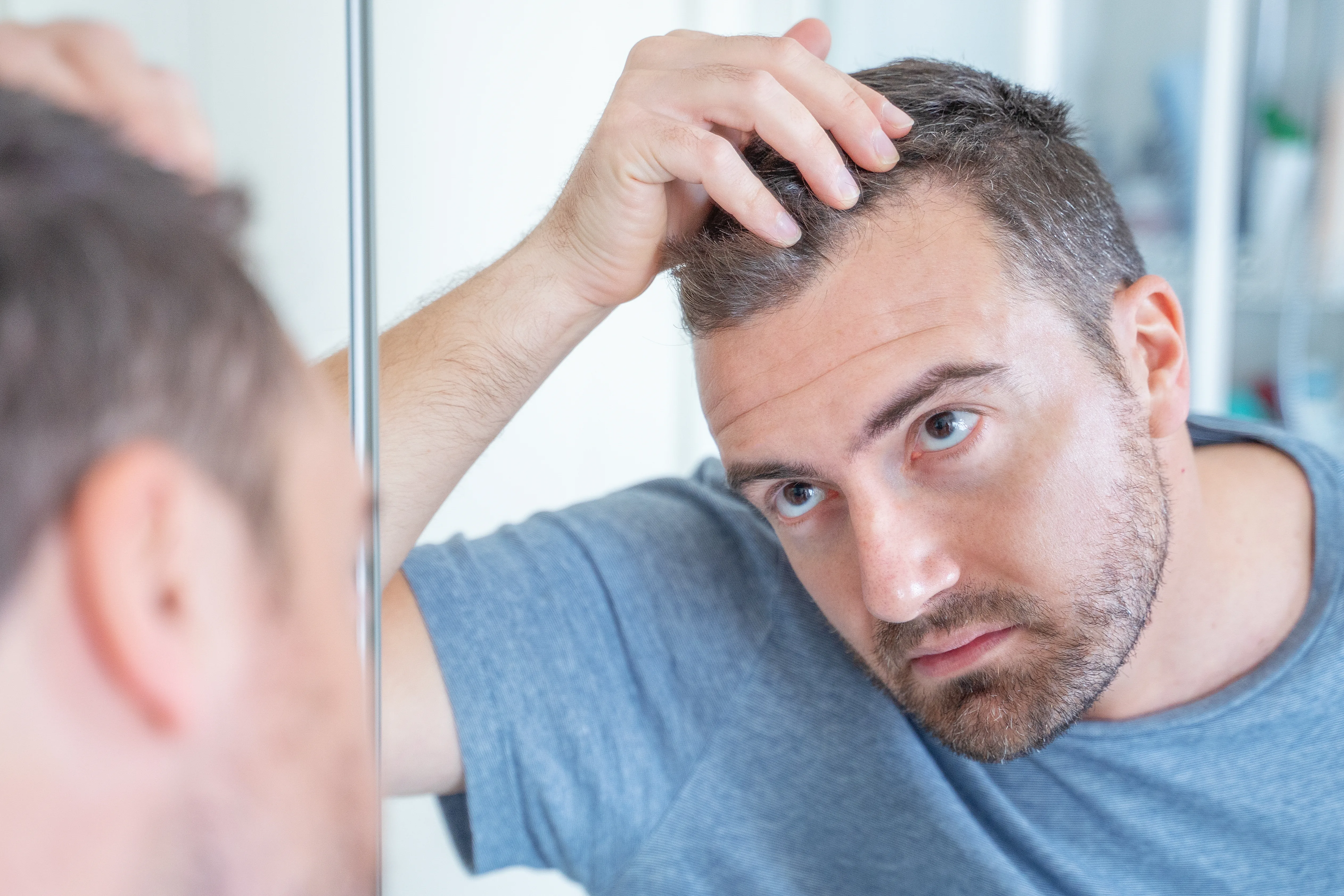Scalp Psoriasis: Everything About Its Causes, Symptoms, and Prevention Tips

Explore our tips and advice on scalp psoriasis, from the causes and symptoms to how to get the treatment you need.
Scalp psoriasis is different from dandruff and seborrheic dermatitis in that it is a rare genetic condition, affecting just 3% of the world’s population. While the condition is more common among adults, it can also develop in children. If you have a close relative with scalp psoriasis, there’s a chance you may have It too – in fact 30% of people who have a relative with the scalp condition also suffer from it.
What are the causes of Scalp Psoriasis?
What is Scalp Psoriasis?
Psoriasis on the head is generally grouped with autoimmune diseases and is intricately tied to your immune system. People who suffer from psoriasis have a hyperactive immune system that attacks the skin based on perceived irritants.
While this might be common with other scalp ailments , the difference lies in the severity of your symptoms. Your system believes that it is under attack and leads to a build-up of dead skin cells to get rid of the supposed attacking element. This translates into the formation of thick, crusty patches on your skin.
Scalp psoriasis is usually associated with discolouration of skin. You’ll notice red patches with silvery scales if your skin tone is on the lighter side. For darker skin tone, the scales take on a grey tone with purplish or dark brown patches.
This is also not restricted to psoriasis on head, as it can affect your neck, back, elbows, knees, navel and behind the ear - which can sometimes make it easier to identify.
Scalp Psoriasis Symptoms
There are some similarities between scalp psoriasis and the symptoms of dandruff such as flaking, itching and dry scalp , but people are also likely to experience:
-
Scaly, bumpy patches
-
Silvery-white or greyish scales
-
Itching, burning or soreness
-
Temporary scalp psoriasis hair loss
-
Psoriasis dry scalp
-
Bleeding with excessive scratching
-
Slight flaking of psoriasis in hair
Mild scalp psoriasis often gets hidden beneath your hair and these symptoms can go unnoticed. It becomes evident only when you start feeling the itch of psoriasis on head or see the scaling.
What are the causes of Scalp Psoriasis?
This condition activates when the immune system sends faulty signals to the skin, causing it to grow rapidly. New skin cells show up in days, instead of weeks. These pile up on the surface of your skin and result in patches on the scalp .
However, identifying the factors that trigger a response from your body is important when trying to find a solution. Learning to manage and control these scalp psoriasis causes can help you reduce flare ups. Some of these are:
-
Stress
-
Infections
-
Obesity
-
Cuts and wounds
-
Dietary factors
-
Smoking
-
Reaction to medications
-
Skin trauma and sunburns
-
Alcohol consumption
-
Other autoimmune diseases
Scalp Psoriasis Treatment
Unfortunately, there doesn’t seem to be any permanent cure for scalp psoriasis just yet, but research is being done in this field to help people. That being said, you can still control your outbreaks. The first step is talking to your dermatologist to find out the best treatment for you.
Medical experts can help you correctly identify the cause of your psoriasis in hair or scalp, determining the severity and the right treatment. Some these are:
-
Medicated creams, ointments, lotions, liquids, gels, foams or sprays to treat the symptoms. These often contain corticosteroids.
-
Over-The-Counter (OTC) products which contain salicylic acid or tar. These can potentially soften the plaque and help remove the scales. Some of these products can slow down skin growth, while soothing inflammation and itching.
-
Phototherapy which uses Ultra Violet (UV) light from special devices. This has shown favourable results in reducing inflammation and flare-ups.
-
Oral medications and injections to counter your scalp psoriasis symptoms. These have varied effects and have to be administered based on each individual.
-
Home remedies that involve aloe vera, baking soda, olive oil, etc. can also be used, but be extremely careful to not create adverse reactions.
-
Change your lifestyle, reduce your stress, eat healthy and don’t scratch your head. Making these small changes in your life can go a long way in reducing the effects of psoriasis.
With scalp psoriasis, it is always recommended that you visit a dermatologist to determine a treatment plan. If you’re unsure whether it’s dandruff vs scalp psoriasis, you might consider using a dandruff shampoo first. Try products like the Head and Shoulders Neem , which can get rid of your dandruff causing germs. If this doesn’t work, make sure to visit the doctor.
FAQs
1. What is the main cause of scalp psoriasis?
Scalp psoriasis develops when an agitated immune system mistakenly sends signals to skin cells, causing them to grow at a rapid pace. The body is unable to shed the excess skin and so patches of psoriasis form.
2. How to get rid of scalp psoriasis?
In the case of mild scalp psoriasis, your dermatologist might recommend OTC products to manage the condition. Other treatments include topical treatments (medicated shampoo, steroids, tars), phototherapy to reduce skin cell growth, injections and biologics.
3. What are the first signs of scalp psoriasis?
Patchy rashes that vary in size and colour, silvery-grey scales, a dry scalp that may crack and bleed, itching, burning and soreness.
4. What deficiency causes scalp psoriasis?
Severe psoriasis has been sometimes linked to nutritional deficiencies - particularly Vitamin D.


